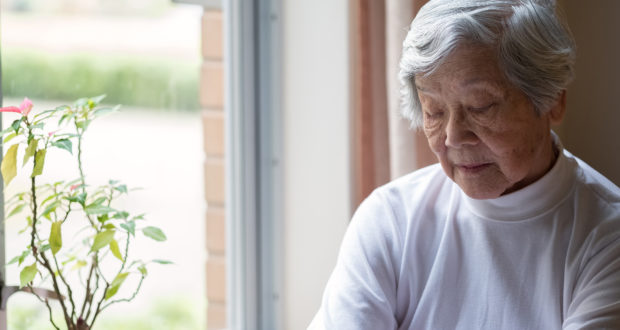Within the next five years, one in four Australians aged 80 or over is expected to be from a culturally and linguistically diverse (CALD) background. As they near the end of their lives, there may be challenges both for them and the aged care system supporting them.
Many migrants worry whether their needs, their beliefs, their values and even their language will be understood as they become more dependent.
And many don’t want to enter Australia’s residential aged care system at all.
Bunbury nurse Gertrude Phiri says when she arrived in Australia from Zambia in 2003, it was a “cultural shock” to see elderly and sick people in care homes.
“In many African countries, there are no aged care homes, just hospices,” she told Aged Care Insite. “When people in our family are old and frail, it is our responsibility to look after them.”
Members of the African diaspora have traditionally returned to their home countries to die. But for the increasing numbers who have children and then grandchildren in their adopted countries, returning home is not so easy.
With African communities growing in Australia, Phiri decided to undertake a PhD at Edith Cowan University looking at how these migrants are preparing for their end of life in Australia, and how our aged care system can better meet their cultural needs.
For her pilot study, she focused on three migrants in their 50s – a woman from Zimbabwe, a man from Zambia and a woman from Malawi – who have lived in Western Australia for more than 15 years.
All now have children, step-children and grandchildren here and can’t bear to leave them. Yet when Phiri asked about advanced care plans, she was surprised to discover none had even considered one.
“Their focus is more on what happens when they die, not before they die, because traditionally, all the decisions around finances and their care are made by the community or extended family.”
Who will take care of me?
In Africa, ageing people are often cared for by siblings or cousins. If they can’t be supported by someone they know, they perfer an older person of the same sex to look after them.
“Being cared for by someone of a different sex in their 20s fills them with horror,” Ms Phiri said. “They think younger women cannot see them without their clothes on. Culturally, that’s not appropriate.”
All three participants in the pilot study planned to bring extended family here to care for them.
If they are forced to go into residential aged care, there are other concerns, such as whether or not their beliefs will be respected. This may include the need to see a pastor, to take communion or to have someone with them when they die.
There’s also a fear that dementia could cause them to revert to their native tongue, enhancing feelings of isolation.
“Right now they all speak good English and have an understanding of Australian culture,” Phirri said. “But if they become cognitively impaired, they’ll go back to the things they knew before.”
Homes for different cultures
In recent years, a number of aged care facilities aligned to certain cultures have popped up around the world.
Residents living with dementia at Hogeweyk in the Netherlands are housed according to their lifestyle: Goois (upper class), homey, Christian, artisan, Indonesian and cultural.
Closer to home, Perth offers a couple of aged care homes to serve its ageing Italian diaspora who arrived in the 1950s and 1960s.
At Italian Village Fremantle, 90 per cent of residents are Italian. They have Italian speaking staff, Italian singers to entertain them, Italian food, and a Catholic mass on Friday.
Chief executive Fifi Schirripa told Aged Care Insite that a cultural and linguistic understanding is crucial to their care.
“Our residents revert to their old language and culture. Some have gone from being fluent in English when they arrived to years later not being able to speak a word.”
Ms Schirripa believes culturally appropriate aged care may benefit other minority groups.
Since the 1970s, Australia has welcomed more people from Asian backgrounds and has seen increasing migration from the Middle East and Africa.
But despite higher numbers of ageing migrants, aged care trends have not necessarily accommodated them. Ms Schirripa says she’s seen a trend towards prioritising the aesthetics of the home rather than its cultural element.
“People are now looking for new developments with pretty rooms in a pleasant location. They’re leaning towards a better physical environment rather than what happens inside the four walls.”
From her early research, Phiri can see the benefit of culturally appropriate care in helping to meet the wishes and needs of migrants. She’s keen to conduct a bigger study on how aged care systems can better care for African Australians.
“A migrant story is a migrant story, whether you’re from Africa, from Asian or from Europe,” she said.
“People leave family behind so their end of life may take a different flavour, but it’s still a migrant story.”
Do you have an idea for a story?Email [email protected]
 Aged Care Insite Australia's number one aged care news source
Aged Care Insite Australia's number one aged care news source

